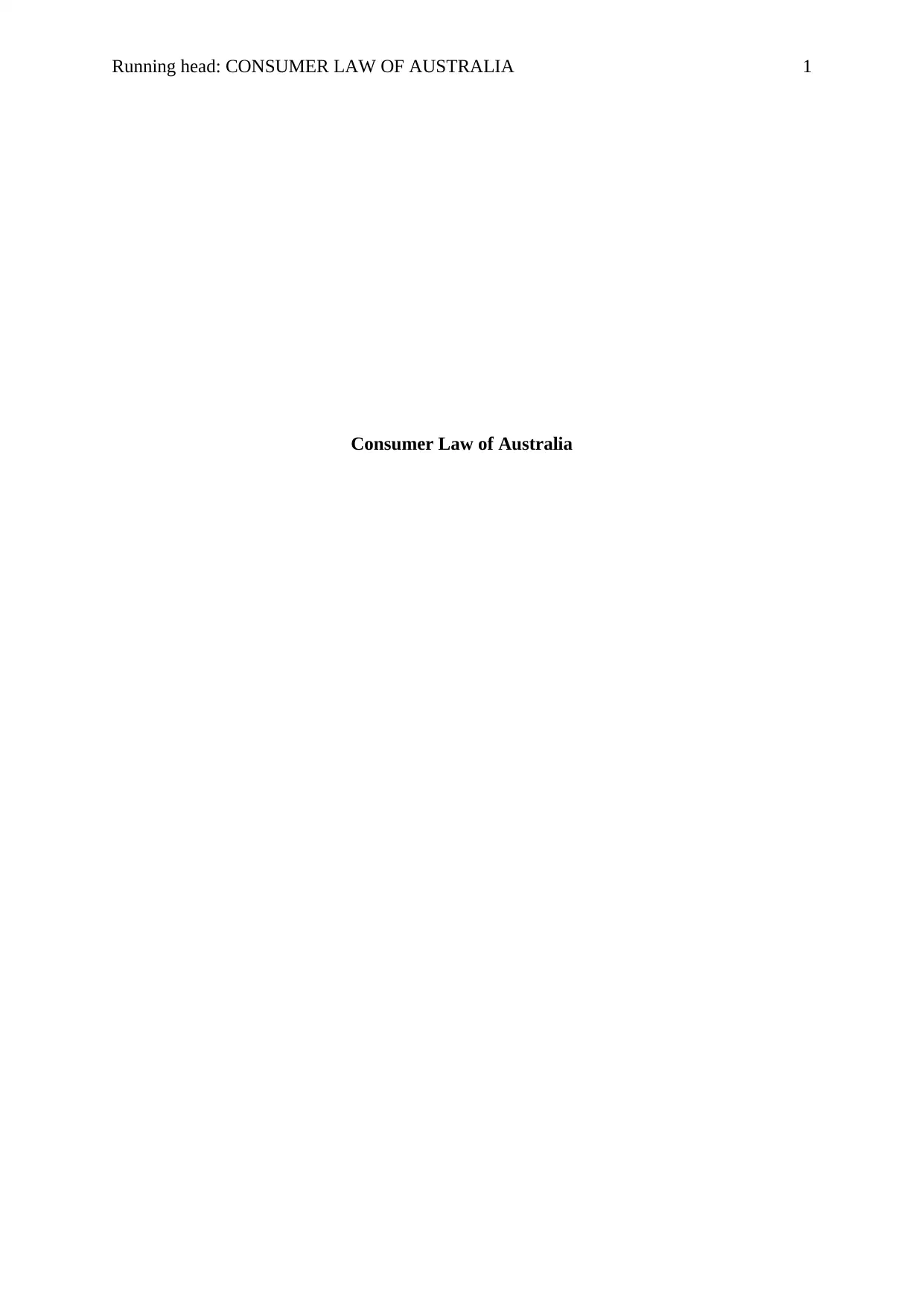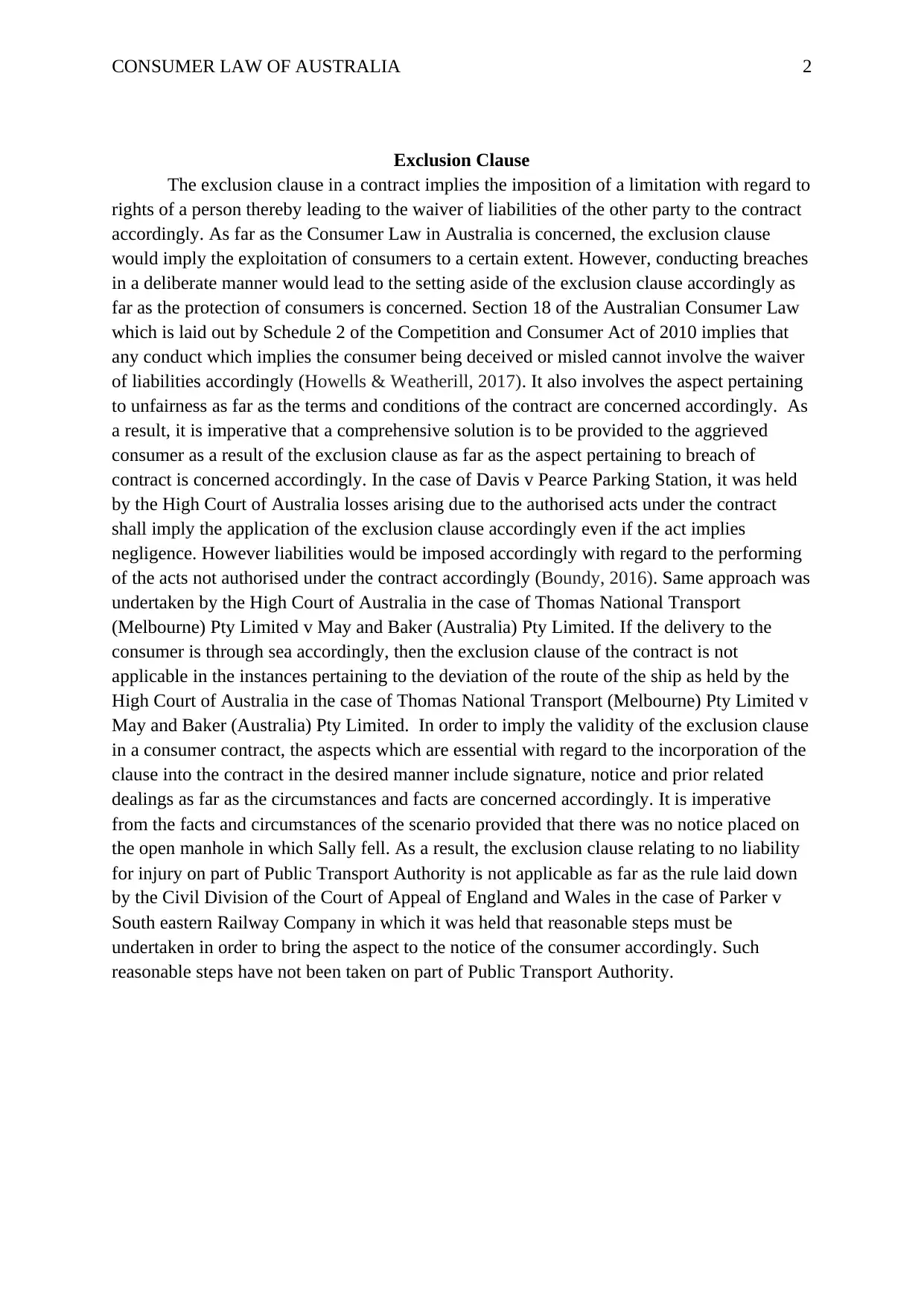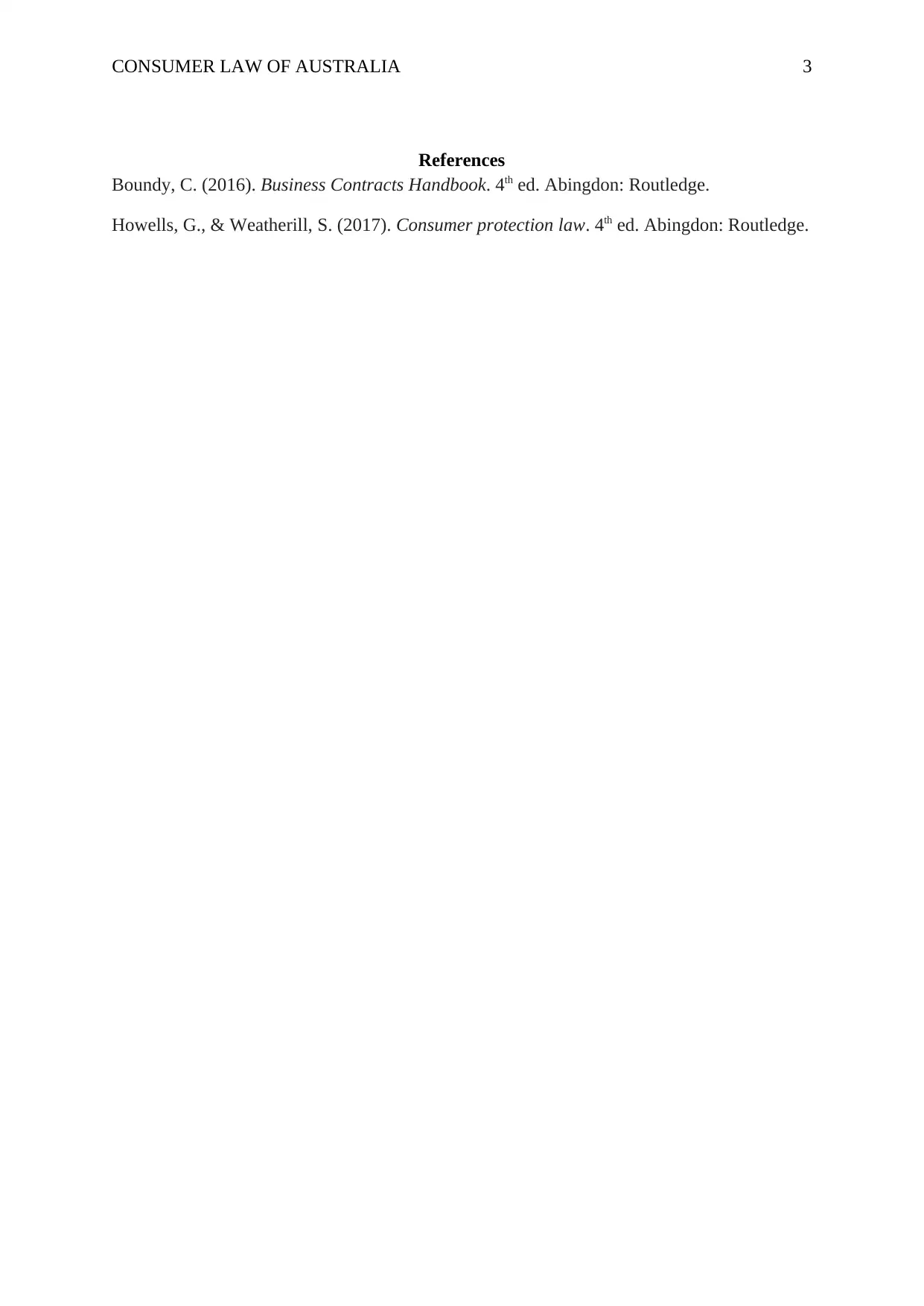Exclusion Clause Validity in Australian Consumer Law: A Report
VerifiedAdded on 2022/11/13
|3
|601
|488
Report
AI Summary
This report provides an analysis of exclusion clauses within the framework of Australian Consumer Law. It examines the implications of such clauses on consumer rights and the validity of contracts. The report delves into the legal principles governing exclusion clauses, including the circumstances under which they are enforceable and the limitations imposed by the Australian Consumer Law, such as Section 18 of the Australian Consumer Law, which addresses misleading or deceptive conduct. It references key legal cases, including Davis v Pearce Parking Station and Thomas National Transport (Melbourne) Pty Limited v May and Baker (Australia) Pty Limited, to illustrate the application of these principles. The report also addresses the requirements for incorporating an exclusion clause into a contract, such as providing adequate notice, and considers the implications of unfair contract terms. The case of Sally and the Public Transport Authority is used to highlight the importance of these considerations. The report emphasizes the importance of consumer protection and the circumstances under which exclusion clauses may be set aside to protect consumers.
1 out of 3










![[object Object]](/_next/static/media/star-bottom.7253800d.svg)